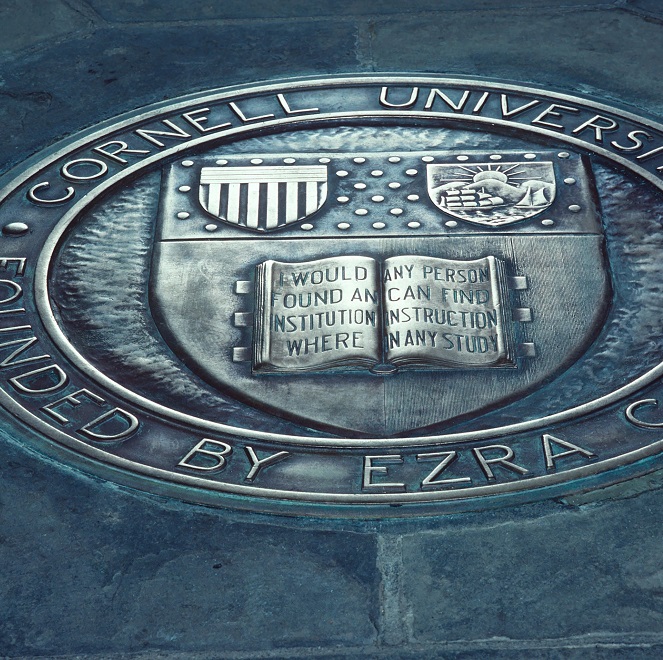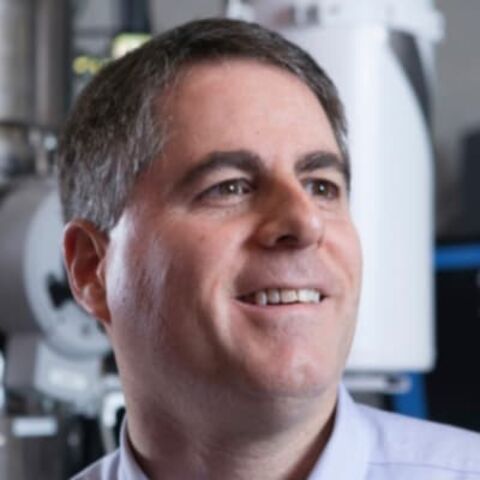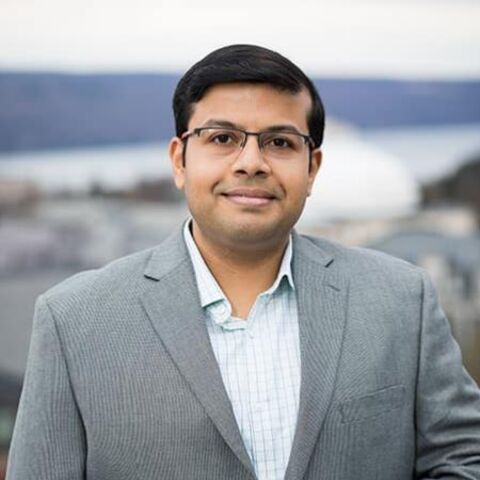News and Events
Full listing
October 6, 2025
Kavli co-director David Muller and Lena Kourkoutis devised a new method, called tilt-corrected bright-field scanning transmission electron microscopy (tcBF-STEM), to image thick samples with higher contrast and a fivefold increase in efficiency.The new method, which was conducted at cryogenic temperatures but is not limited to them, can create images inside intact bacterial cells and large organelle up to 500-800 nanometers thick - an improvement of roughly a factor of five. Potential applications could range from discovering the elusive function of proteins to imaging lithium-ion batteries, which, like biological materials, are extremely sensitive to radiation.
July 10, 2025
For decades, ferromagnetic materials have driven technologies like magnetic hard drives, magnetic random access memories and oscillators. But antiferromagnetic materials, if only they could be harnessed, hold out even greater promise: ultra-fast information transfer and communications at much higher frequencies – a “holy grail” for physicists.
April 17, 2025
From soft robots crawling through crops to bio-based fertilizers that protect waterways, the future of farming lies at the intersection of scientific disciplines, according to a new study describing how agriculture’s toughest challenges require coordinated breakthroughs in biology, chemistry, engineering and data science.
March 18, 2025
A team at Cornell has for the first time identified exactly what happens when a microbe receives an electron from a quantum dot: The charge can either follow a direct pathway or be transferred indirectly via the microbe’s shuttle molecules.
January 17, 2025
An advanced imaging technique developed at Cornell has revealed the first two-dimensional, mechanically interlocked polymer – confirming a breakthrough in both material design and electron microscopy.
September 24, 2024
Apply now for our Bethe/Wilkins/KIC Theory Postdoctoral Fellowships!
September 24, 2024
Apply now for our 2024 KIC Experimental Postdoctoral Fellowship!
On Monday, January 29th from 1:15 – 2:30pm in Philips Hall 101, Nobel Laureate Hiroshi Amano (Nagoya University) will present How a poor university lab sparked the blue LED revolution and will have a lasting impact on the net-zero-carbon emission and smart society of the future. This is an Electrical and Computer Engineering Colloquium and a part of KIC’s Kavli Distinguished Lecturer Series.
Please join for a lunch reception at noon in 116 Upson Hall, which will precede the talk.
November 7, 2023
"For pioneering a new generation of electron detectors and phase-sensitive reconstruction algorithms leading to significant advances in the resolution and capabilities of electron microscopes."
June 26, 2023
Debanjan Chowdhury (KIC Exec Committee member and assistant professor, Physics and LASSP) find that "even a tiny amount of imperfection, inherent in any real-life material, plays a key role" to understanding the switch between a metal and an insulator within a single material.








